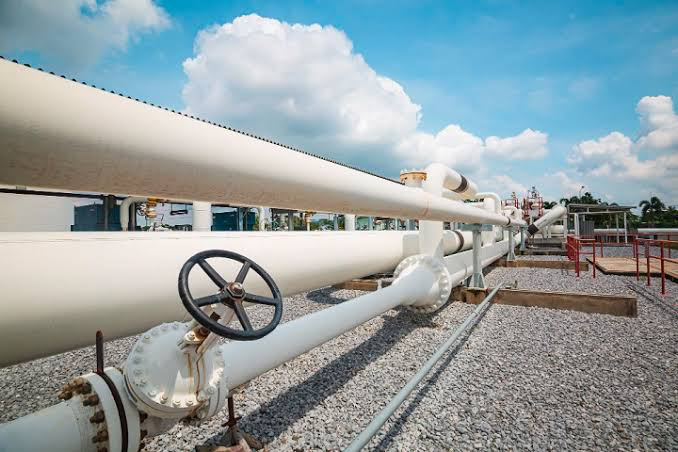403
Natural gas will continue to play a crucial role in South Africa’s energy mix, according to a recent report by global consultancy Kearney. The report emphasizes the importance of natural gas in ensuring energy security and supporting the country’s transition to renewable energy sources.
Despite the global push towards renewable energy, South Africa’s reliance on coal-fired power plants means that gas is essential as a transitional fuel. Gas offers a cleaner alternative to coal, producing significantly lower carbon emissions. It can also provide reliable and flexible power, which is critical for balancing the intermittent nature of renewable energy sources like wind and solar.
The Kearney report highlights several key factors that underpin the continued importance of natural gas in South Africa. Firstly, the country’s energy demand is growing, driven by economic development and urbanization. Meeting this demand solely with renewables is challenging due to current technological and infrastructural limitations. Natural gas can bridge this gap, ensuring a stable power supply while the country scales up its renewable capacity.
Secondly, natural gas infrastructure is already in place and can be expanded relatively quickly and cost-effectively compared to building new renewable energy facilities. South Africa has existing pipelines and import facilities, and further investments in gas infrastructure can enhance energy security and reduce dependence on coal.
Additionally, the report points to the potential for developing domestic gas resources. South Africa has significant untapped natural gas reserves, including offshore fields. Developing these resources could reduce reliance on imported gas and create jobs, contributing to economic growth.
The South African government has recognized the strategic importance of natural gas. Policies and initiatives aimed at encouraging investment in the gas sector are being implemented. This includes plans to develop gas-to-power projects and the construction of new liquefied natural gas (LNG) import terminals.
However, the report also stresses the need for a balanced approach. While natural gas is crucial for the short- to medium-term energy strategy, South Africa must continue to invest in renewable energy to achieve long-term sustainability and meet its climate commitments. The transition to a low-carbon economy requires careful planning to ensure energy security and economic stability.
Stakeholders in South Africa’s energy sector are optimistic about the role of natural gas in the country’s energy future. Industry leaders believe that with the right policies and investments, natural gas can support the energy transition, provide economic benefits, and help South Africa meet its climate goals.
As the country navigates its energy transition, there is hope that a diversified energy mix, including natural gas, will lead to a more resilient and sustainable energy system. The integration of natural gas with renewable energy sources can pave the way for a cleaner, more reliable, and economically beneficial energy future for South Africa.
Source: Engineering News
Despite the global push towards renewable energy, South Africa’s reliance on coal-fired power plants means that gas is essential as a transitional fuel. Gas offers a cleaner alternative to coal, producing significantly lower carbon emissions. It can also provide reliable and flexible power, which is critical for balancing the intermittent nature of renewable energy sources like wind and solar.
The Kearney report highlights several key factors that underpin the continued importance of natural gas in South Africa. Firstly, the country’s energy demand is growing, driven by economic development and urbanization. Meeting this demand solely with renewables is challenging due to current technological and infrastructural limitations. Natural gas can bridge this gap, ensuring a stable power supply while the country scales up its renewable capacity.
Secondly, natural gas infrastructure is already in place and can be expanded relatively quickly and cost-effectively compared to building new renewable energy facilities. South Africa has existing pipelines and import facilities, and further investments in gas infrastructure can enhance energy security and reduce dependence on coal.
Additionally, the report points to the potential for developing domestic gas resources. South Africa has significant untapped natural gas reserves, including offshore fields. Developing these resources could reduce reliance on imported gas and create jobs, contributing to economic growth.
The South African government has recognized the strategic importance of natural gas. Policies and initiatives aimed at encouraging investment in the gas sector are being implemented. This includes plans to develop gas-to-power projects and the construction of new liquefied natural gas (LNG) import terminals.
However, the report also stresses the need for a balanced approach. While natural gas is crucial for the short- to medium-term energy strategy, South Africa must continue to invest in renewable energy to achieve long-term sustainability and meet its climate commitments. The transition to a low-carbon economy requires careful planning to ensure energy security and economic stability.
Stakeholders in South Africa’s energy sector are optimistic about the role of natural gas in the country’s energy future. Industry leaders believe that with the right policies and investments, natural gas can support the energy transition, provide economic benefits, and help South Africa meet its climate goals.
As the country navigates its energy transition, there is hope that a diversified energy mix, including natural gas, will lead to a more resilient and sustainable energy system. The integration of natural gas with renewable energy sources can pave the way for a cleaner, more reliable, and economically beneficial energy future for South Africa.
Source: Engineering News



